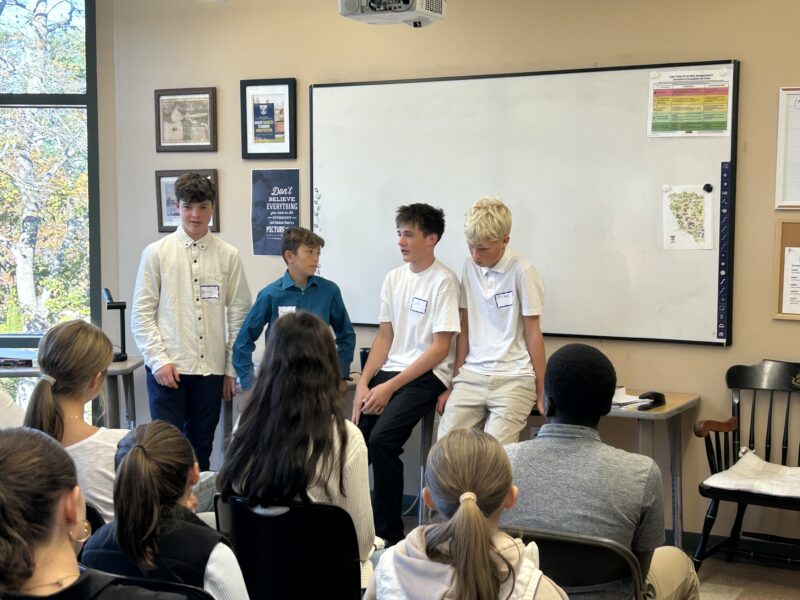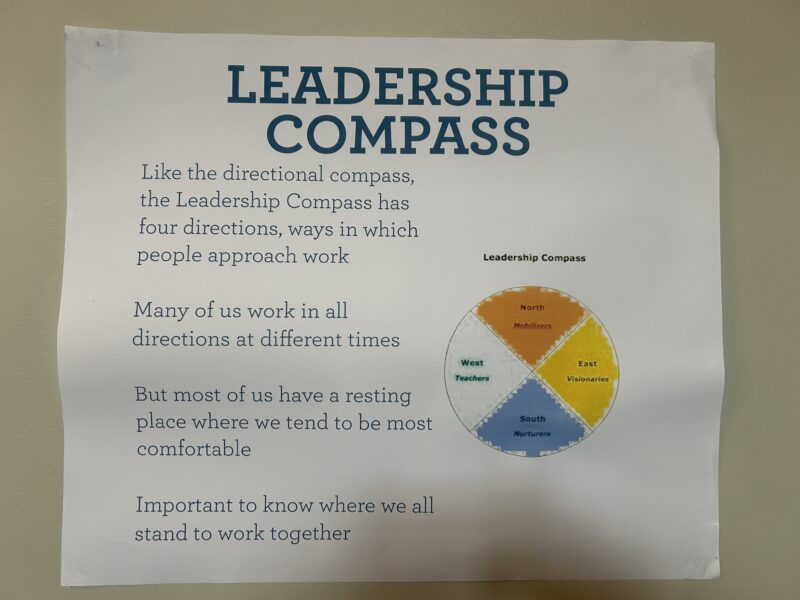During a recent FLC on our Bath campus, I referred to my notion of the 4 2’s. Since several parents have since asked about it, I thought I’d offer it here. In essence, this is about the two objectives we try to inculcate within our students at Hyde (1. character by reflex; 2. conscience-driven lives) as well as the 2 things that uniquely get in the way of this objective for each of our 3 primary constituencies: students. parents, and faculty.
Here are the two objectives:
Character by Reflex
At a recent school assembly, I began tossing a soccer ball back and forth with random students. As expected, each student caught the ball and tossed it back to me. I then told a story about a professional European soccer coach who once worked with our players at Hyde. During his first session, he did the very same thing with the soccer ball, and the students responded as these students did. He then said, “If I did this in Europe, the kids would never reach up with their hands. Instead they would head the ball, trap the ball on their knees, or juggle it with their feet. Until American kids get to the point where their first impulse is not to reach up with their hands, the Americans will never be competitive in World Cup soccer.”
This analogy applies to kids at Hyde. We are trying to graduate young men and women who will have excellent character reflexes. They will… be truthful, act with courage, step up to lead, exhibit enterprising curiosity, care for others – and do all of the above without thinking about it.
Ironically, these split-second reflexes require life-long maintenance. I recently sat in a #6 New York subway car heading out to the Hyde-Bronx charter school. There was a pregnant woman, holding a baby, standing nearby. A moment later another passenger got out of his seat and gave it to this woman. I was embarrassed and more than a little ashamed at myself to realize that my concern reflexes had failed me. They needed some work. Hence, one doesn’t just learn this stuff once; it needs to be a life-long commitment requiring ongoing renewal and maintenance.
Aristotle said, “Character is the habit of making right decisions.” It’s one thing to think about the right thing to do in a given situation. It’s quite another to do it “on the fly.” That’s our goal.
Conscience-Driven People
The second objective can be understood in the work of Harvard psychologist Lawrence Kohlberg. Kohlberg’s exhaustive research suggested that people are not simply moral or immoral, but that there are degrees of morality. He identified three stages with two levels within each. At risk of over-simplification, the three stages are as follows:
- Stage #1 people are concerned solely with direct consequences of their actions. The decision to obey or disobey is based primarily on punishment and reward.
- Stage #2 reflects social norms. Speaking of subways, I have observed that Washington subway riders seem less likely to litter than their New York counterparts. My point: both groups seem to reflect their corresponding norms. Stage #2 is a higher level of morality than Stage #1, but it is still based on reactions to others rather than conscience.
- Stage #3 embodies a conscience-driven life. Stage #3 people ask, “What is right?” That’s our goal for our graduates.
So what gets in the way of these two objectives? I have observed that each constituency in the Hyde student/teacher/parent triad seems to face two obstacles unique to itself. My next post will address these.
Onward, Malcolm Gauld


